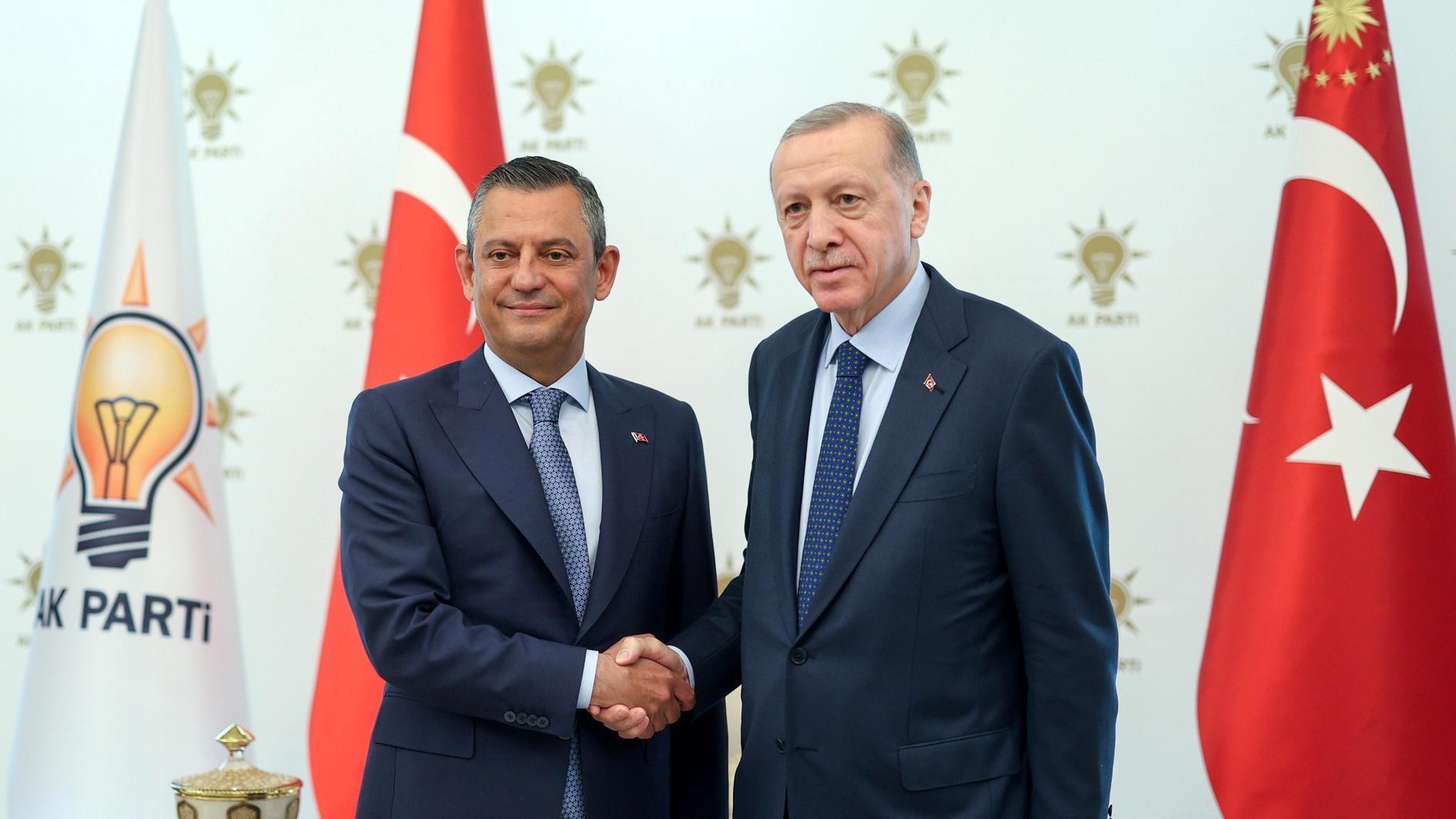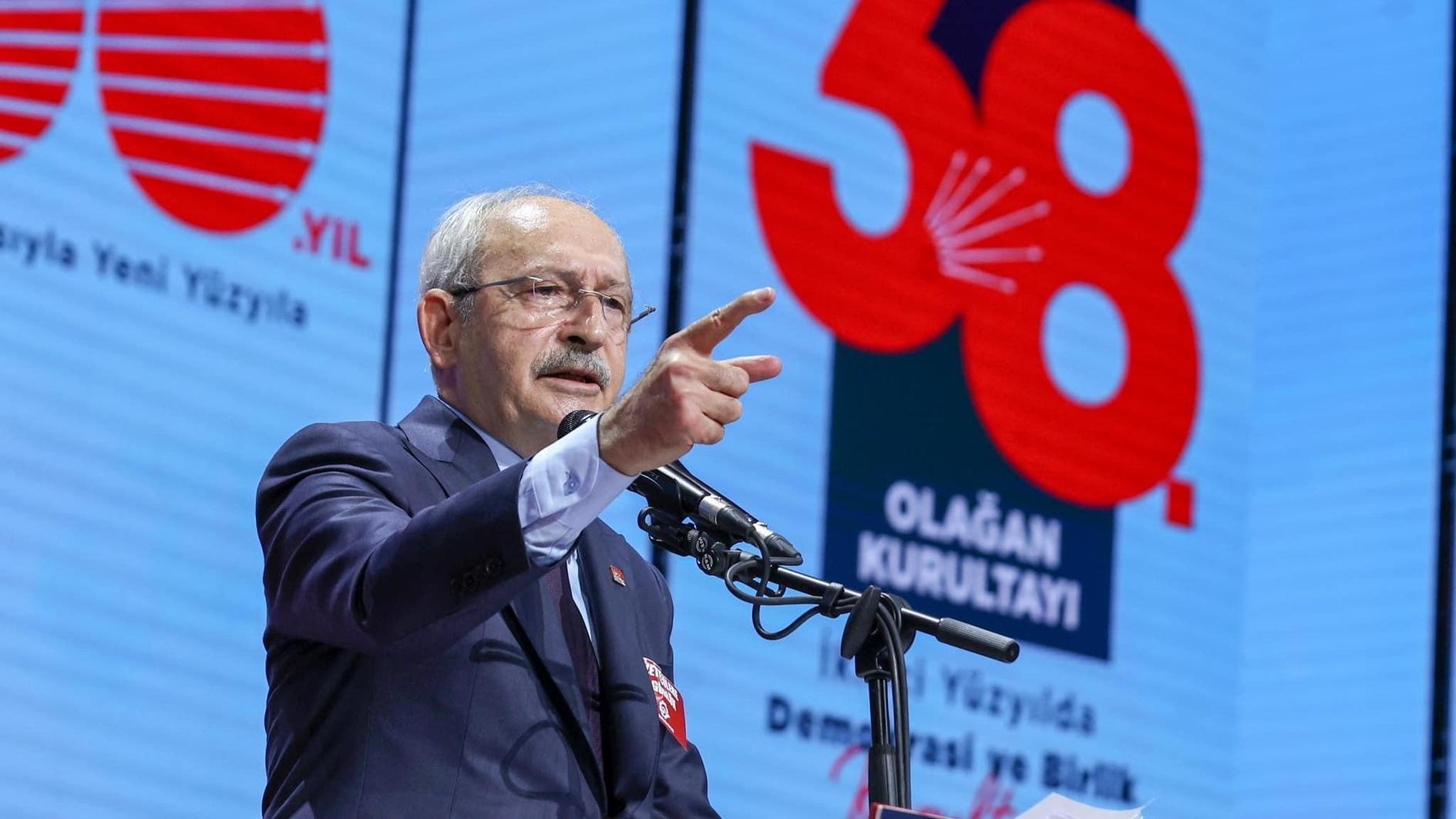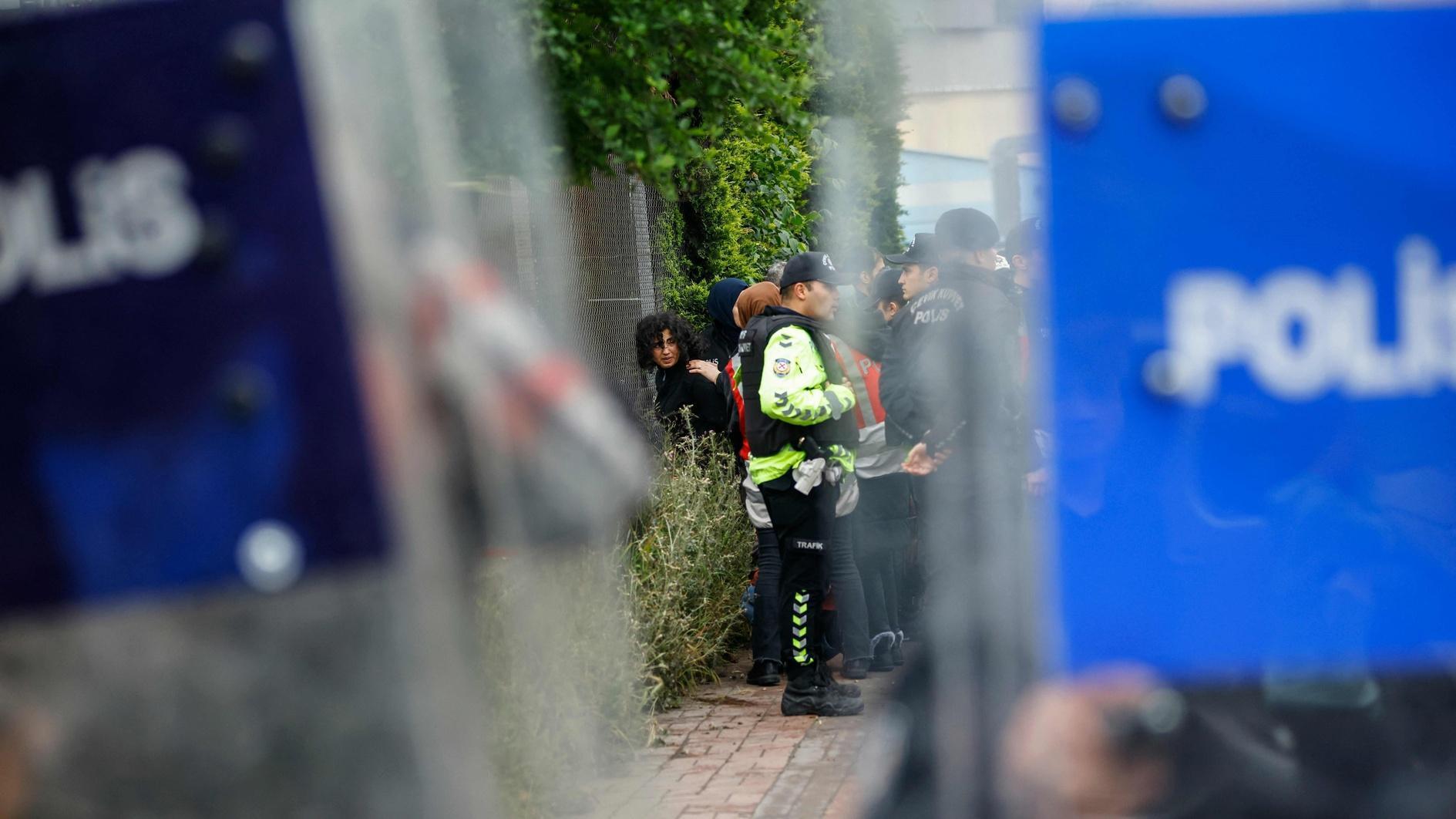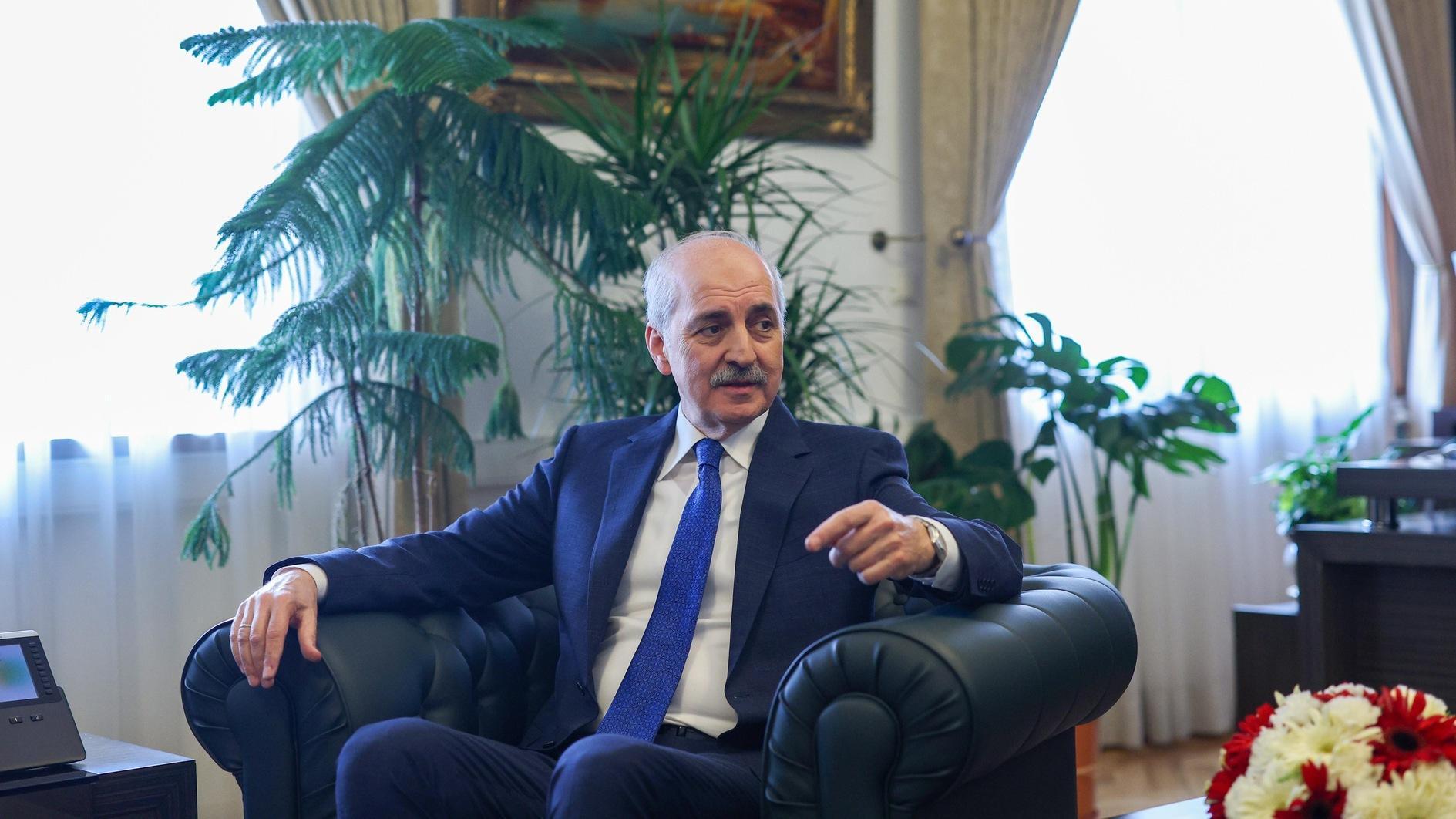Lacking fighter jets, Baltic states count on NATO allies
ZOKNIAI - Agence France-Presse
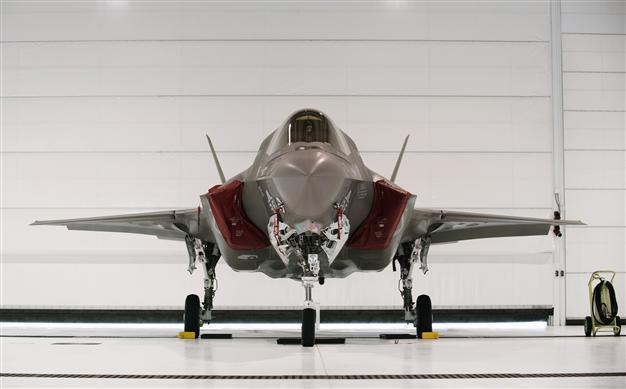
A U.S. Marine F-35B Joint Strike Fighter Jet sits in a hangar after the roll-out Ceremony at Eglin Air Force Base in Florida in this February 24, 2012 file photograph. Reuters photo
Above the Baltic states, German Phantom jets roar across the skies to protect a trio of cash-strapped NATO nations lacking their own air policing aircraft.In return, Lithuania provides the Siauliai Air Base, once the home of Red Army troops, while Estonia and Latvia help fund the mission, which is considered crucial by Russia's small neighbours.
This arrangement highlights the harsh reality that other wealthier NATO allies are now also facing after years of shrinking defence budgets: Lose some national sovereignty in order to keep up military might.
At the Siauliai base, an airstrip with two runways and a six-storey-high control tower, 80 German crew members work with some 400 Lithuanian staff. The Polish air force takes over the rotating mission in late April.
"We have an example of good cooperation because we don't have the necessary assets," said Colonel Antanas Jucius, chief of staff of the Lithuanian air force after a two-day air policing exercise over the Baltic Sea this week.
"It's an absolute must," he said.
Lithuania had two Czech-made L-39 light attack aircraft until it lost one last year when it crashed during an exercise with French Mirage jets. The government is now discussing if it can buy new training aircraft.
Estonia and Latvia do not have combat jets.
Instead of spending millions on these expensive planes, the Baltic trio is paying its dues in other ways, including by deploying special forces in Afghanistan.
NATO Secretary General Anders Fogh Rasmussen has pointed to the Baltic air policing mission as a prime example of the sort of savings that cooperation can bring in a concept he has dubbed "Smart Defence." The alliance is pushing for a political declaration on Smart Defence at NATO summit in Chicago in May after years of foot dragging when it comes to joining forces to buy military equipment.
NATO, an alliance official said, is looking for a "change of culture, a change of mindset" at the summit to convince nations that banding together is better than going it alone.
"Cooperation that has been done hitherto has been done where it suits your own national agenda," the official said on condition of anonymity.
"The mindset change we're seeking is that it is done as the norm, which requires you to compromise in certain areas of what you see nationally as an importance in equipment terms for the good of the whole," he said.
Signs of progress have emerged recently: NATO allies finally agreed last month to collectively buy drones after years of wrangling over how to fund the programme.
At the same time, the European Union, which includes 21 NATO members, decided this month to combine efforts to acquire air refuelling aircraft and deploy field hospitals.
The debt crisis has precipitated this effort, but budgets have been falling for years, and only a handful of allies respect NATO's call for 2.0 percent of gross domestic product to be spent on defence.
Twenty of the alliance's 28 members cut their defence budgets between 2008-2011, despite constant US pressure for allies to reverse the trend.
With NATO set to withdraw combat troops from Afghanistan in 2014, and allies eyeing an exit from Kosovo too, the alliance could soon find itself without any operations that governments may be tempted to spend elsewhere than defence.
"It's realpolitik that nations are going to take some savings out of the money that they won't have to spend in Afghanistan when they draw down," the NATO official said.
"But we are still pushing them that they still have to continue to invest in defence."


